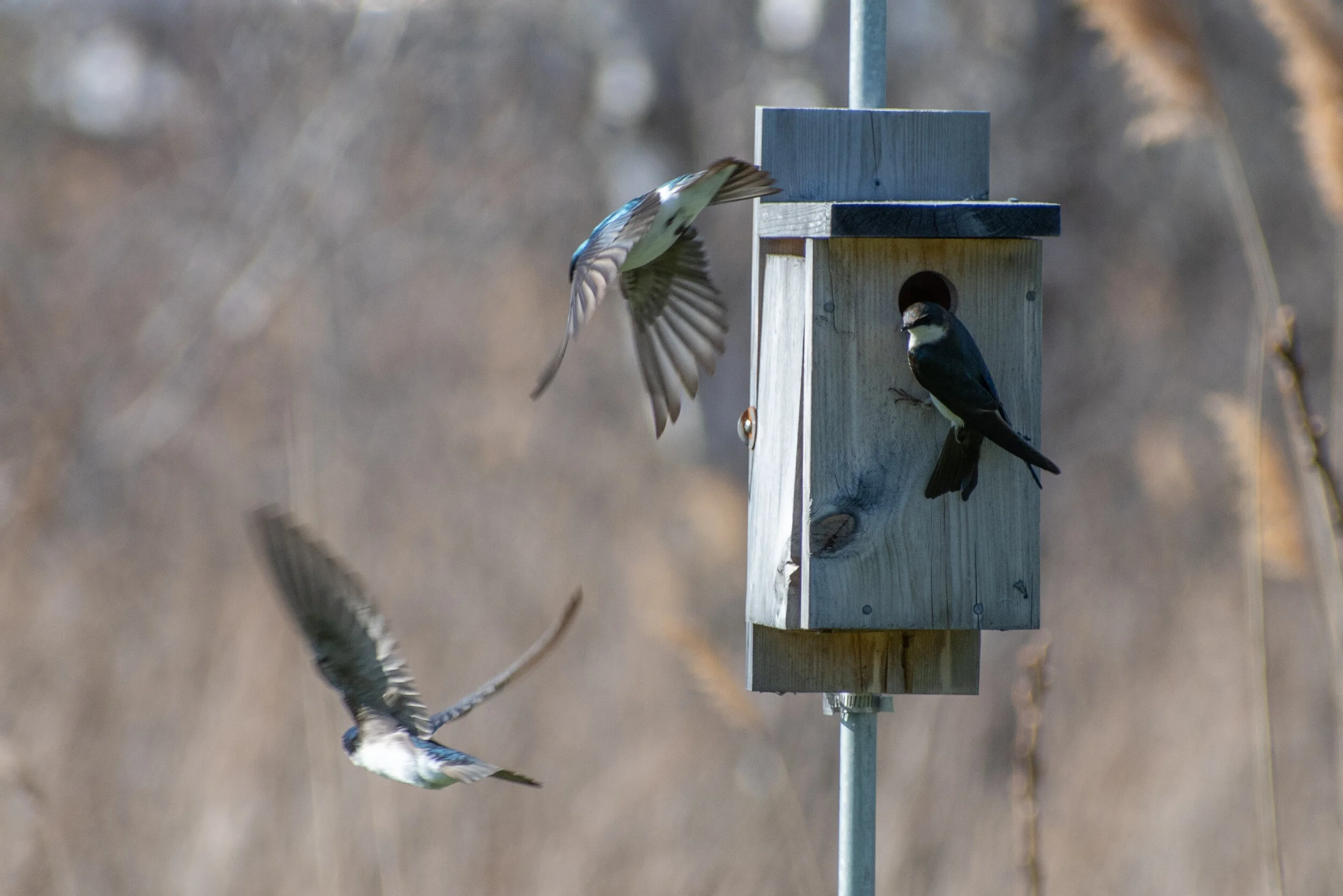If you have ever enjoyed the soft evening of an early summer day in McDonald Park you have probably seen a small bird with an electric blue back flying low over the lawns. These birds are tree swallows, a migratory song bird that nests in nesting boxes and holes in trees in the park.
Tree swallows are a migratory species that return to the watershed every spring. They not only nest in Maconald Park, but other open areas in the watershed such as Belle Isle Marsh. They are an early migrant, arriving in April. When they arrive, they are looking for places to nest—and they readily nest in the boxes that MyRWA volunteers built and installed in the park.







The female Tree swallow builds a nest in the box, using mostly grasses. They often line the nest with feathers to keep the eggs and new baby birds warm. The female lays 4-7 eggs, and incubation takes about 14 days. Following hatching, both parents feed the growing and insatiable nestlings. Tree swallows are insect eaters, and they catch these insects on the wing. It takes about 21 days from hatching for tree swallows to fledge. Once they fledge, the young birds hang around the nesting site learning to fly and feed on their own.
In late August tree swallows form large pre-migratory flocks with thousands of birds and move to marshy areas to feed. The best place to see this phenomenon locally is on Plum Island in Newburyport. It is worth the effort to see, it is spectacular. In September, they begin their migration south. Tree swallows are leisurely migrators, often taking two to three months to arrive at their wintering areas. They winter in marshy wetlands of South Florida, Louisiana and Mexico. If they survive migration and the winter, tree swallows will return to nest in the same box they nested in the summer before.
Building and taking care of tree swallow nesting boxes in McDonald Park is just one small way that MyRWA is working to improve natural life and habitats in the watershed. Nesting tree swallows are protected by both Federal and State law. Disturbing the nesting boxes is against the law and punishable by a large fine.
Author: Michael Fager, volunteer and naturalist.
See more birds of Macdonald Park.





